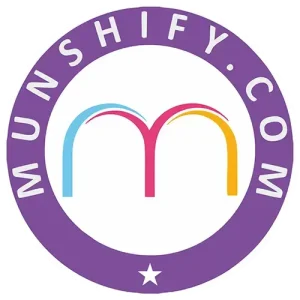Hiring fresh graduates from campuses has always been a key strategy for companies aiming to build a strong and future-ready workforce. However, the process can be complex and time-consuming. That’s where HRMS software plays a vital role. By streamlining recruitment and onboarding, this technology ensures a smooth transition from campus to corporate life for new hires.
Understanding the Role of HRMS Software in Campus Recruitment
Campus recruitment involves several tasks—from coordinating with colleges to screening hundreds of candidates. In the past, HR teams handled this manually, which often led to errors and delays. Today, many organizations use HRMS software to streamline the entire process.
Automation makes pre-screening tests, interview scheduling, and documentation much more efficient. With centralized access to candidate data, HR teams can monitor progress and make informed decisions quickly. This shortens the recruitment cycle and improves the quality of hires.
Additionally, the system handles bulk data processing effortlessly, easing the workload for HR professionals. A smoother process also strengthens the employer brand among students, helping companies attract top talent.
Improving Collaboration with Institutions
In campus hiring, strong communication with colleges is necessary. Often, miscommunication or delays in sharing information affect the hiring process. When HRMS software is used, coordination becomes more transparent and effective.
Learn More: Remote Work Management: How HRMS Systems Are Evolving in 2025
Colleges can be added as stakeholders in the system, allowing them to view updates in real time. They can receive schedules, requirements, and feedback through the same platform. This level of collaboration helps companies build long-term relationships with top institutions.
Enhancing the Candidate Experience
Candidates often form their first impression of a company during the hiring process. If they experience delays, confusion, or lack of feedback, they may lose interest in the job offer. HRMS software helps deliver a structured and engaging experience from the start.
The system sends automated emails and notifications to keep candidates updated. It hosts online assessments and allows candidates to book interview slots on their own, saving time for both sides. These features create a smooth, professional process that builds a positive perception of the company.
Automated Onboarding of Fresh Talent
After recruitment, onboarding becomes the next major challenge. New hires often feel overwhelmed at this stage. HR teams must carefully manage documents, training, orientation, and department allocation. A well-designed HRMS software streamlines the entire onboarding journey through automation.
The system automatically schedules tasks like ID generation, document submission, training modules, and introductory sessions. It guides employees step-by-step, helping them settle in quickly and start contributing sooner.
Tracking Performance and Growth from Day One
Once fresh graduates join, managers need to closely monitor their performance during the initial months. This helps assess their learning curve and readiness for assigned roles. Fortunately, HRMS software enables performance management features right from the onboarding stage.
The system digitally tracks probation goals, training progress, and manager feedback. With real-time analytics, HR teams and managers can quickly identify signs of growth or skill gaps. This allows them to take corrective action without delay.
Why HRMS Software is Essential for Campus Hiring in 2025
In today’s fast-paced job market, recruiters must make decisions quickly and accurately. Manual processes no longer meet the demands of modern hiring. As new campuses emerge each year and more students graduate, companies face increasing volumes of hiring. By using HRMS software, organizations can easily scale their campus hiring strategies while maintaining quality.
In addition, stricter data privacy and compliance regulations require extra care. HRMS platforms offer built-in security features that safeguard candidate information and help organizations meet legal standards.
To sum it up, HRMS software has transformed the way companies approach campus recruitment and onboarding. From reducing manual work to improving the candidate’s experience, its role is essential in creating a streamlined and scalable hiring process. As the demand for fresh talent continues to rise, organizations using HRMS tools will stay ahead in building a strong and agile workforce.
Frequently Asked Questions (FAQs)
1. What is HRMS software?
HRMS software is a tool that helps companies manage their employee-related tasks like hiring, onboarding, salaries, and performance — all in one place.
2. How does HRMS software help in campus hiring?
It makes campus hiring easier by doing things like sorting resumes, setting up interviews, and sending updates to colleges and students — all automatically.
3. Can HRMS software make onboarding easier for new employees?
Yes, it can! It helps new employees by guiding them through steps like filling out forms, uploading documents, and starting training — without much confusion.
4. Is HRMS software useful for small companies too?
Yes. Even small businesses can use it to save time, reduce mistakes, and hire the right people from colleges more easily.
Start optimizing your HR processes today. Visit Munshify.com for HRMS solutions.



